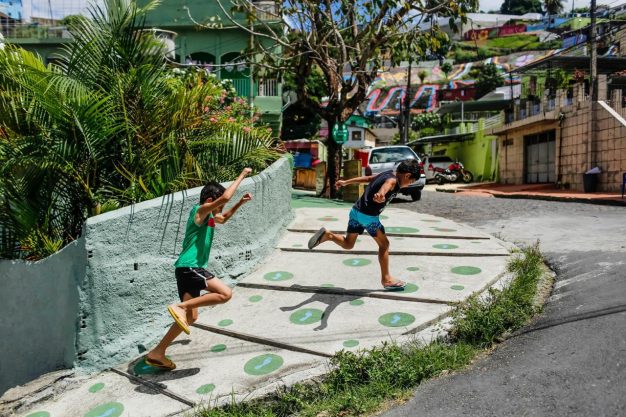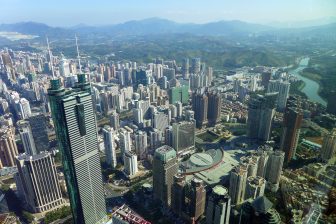
Five key ‘takeaways’ from Urban95 Festival
Urban communities must themselves demand baby and toddler-friendly cities to help make them a reality, says the Bernard van Leer Foundation (BvLF).
That’s just one of five key ‘takeaways’ from the foundation’s recent Urban95 Festival, which celebrated how different cities globally are positively influencing the development of children.
More than 70 city leaders, urban planners, designers and other stakeholders got together in Rotterdam for an in which they shared experiences and learned new techniques and ideas, while at the same time strengthening and expanding the Urban95 network.
Identify and scale cost-effective ways for change
Urban95 is the foundation’s dedicated arm for helping cities increase positive interactions between caregivers, babies and toddlers, increasing access to – and use of – the services and amenities crucial to families’ well-being, and reducing stresses on caregivers.
Its overall aim is to help city planners, urban designers, and other urbanists understand how their work can influence child development, by helping them identify and scale cost-effective ways to improve the way families with small children live, play, interact and move through cities.
Improvements for families
Broadly, these aims are split into two categories of policies and services: Family-friendly urban planning and design, including a city’s space, use of land, infrastructure and services; and Healthy Environments for Children, including air quality improvements and access to nature.
The Urban95 Festival set out these five ‘takeaways’:
-
Demand for baby and toddler-friendly cities must come from the community: Parents and other community members must be invited to be a part of the Urban95 ‘movement’, and that demand for cities amongst its voters will ensure long-term sustainability of the Urban95 mantra.
-
We need to make the Urban95 network more diverse: Currently comprising city leaders, staff and technical organisations, the network must take an ‘essential’ cross-sectoral approach for transforming cities. There is untapped potential among neglected groups such as taxi driver bodies or slum dweller associations.
-
Do we need to rethink the moral pitch?: There was much debate about how to ensure that Urban95’s focus on children becomes key to the policy agenda of cities worldwide. Teresa Surita, Mayor of Boa Vista in Brazil, one of Urban95’s project cities, said that just talking about children’s needs encourages an integrated approach to developing policies across different municipal departments. Others suggested talking directly to private businesses, showing them the monetary returns on their investments.
-
We shouldn’t be afraid of ‘failing’…if anything, we should try to fail earlier: Pilot experiments, say the foundation, should be seen as exactly that – experiments to test something. “We have experiments that didn’t work out, and that’s OK – that’s learning!”, said Bosmat Sfadia-Wolf, the Urban95 leader in the Israeli municipality of Tel Aviv-Yafo.
-
There is no single right path to scaling Urban95: What became clear from the numerous examples and case studies were the multiple ways and strategies for scaling Urban95. Project workers in the Brazilian city of Recife use fortnightly data reports and dashboards to keep staff accountable and ensure tasks were completed. In India, a ‘top-down’ approach in the cities of Bhubaneswar and Pune has seen Urban95 guidelines incorporated at a federal level, and then translated into concrete initiatives ‘on the ground’.
The foundation also points to some other insights that came out of the festival, including the need to understand the concerns and questions of those living in refugee settlements, the importance of data collection and how it can drive decisions and ‘make invisible issues, like air quality, visible’, exposing children to a healthy amount of risk when playing, and how infrastructure alone is not alone to impact the lives of children and caregivers: “We need to measure and analyse their behaviours, and design or modify infrastructure accordingly and incrementally.
You can also search under the hashtags #Urban95Festival or #Urban95Chat on Twitter and view the Powerpoint presentations from the festival’s breakout sessions.




